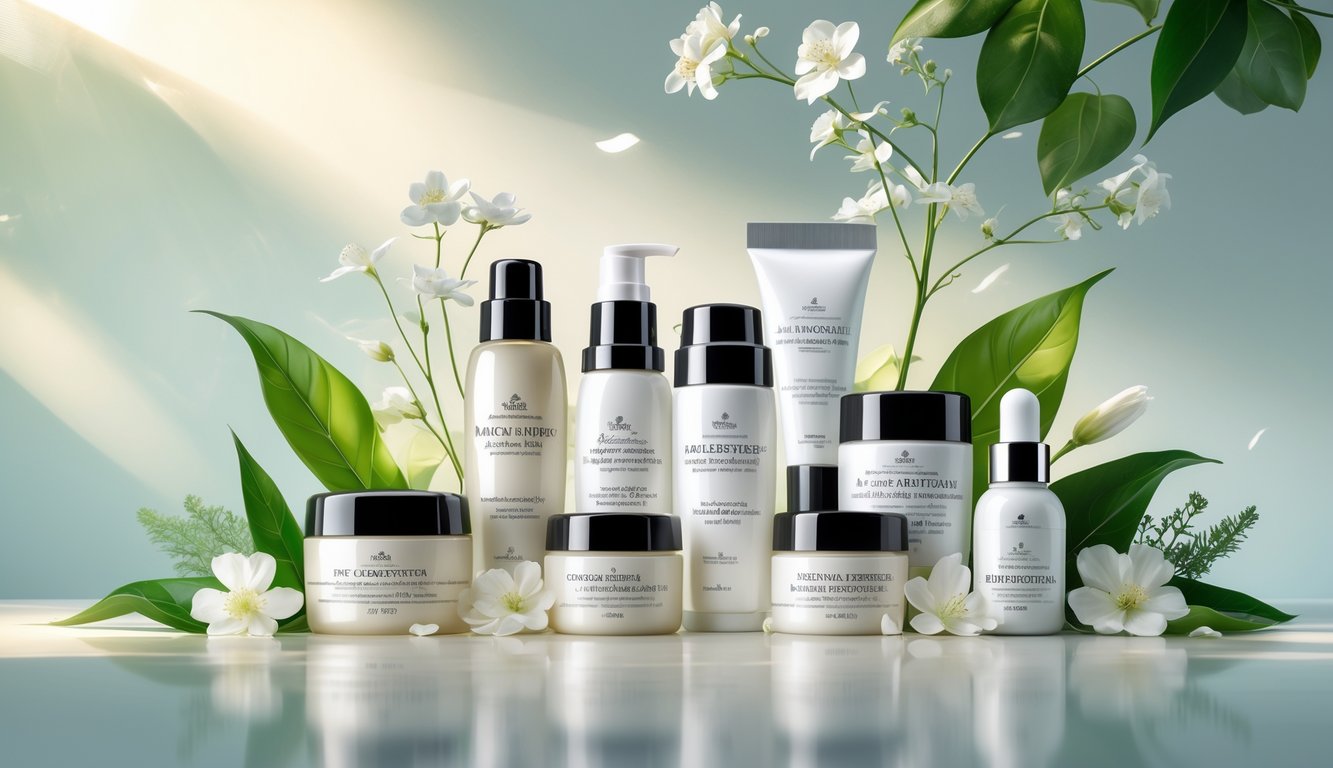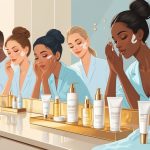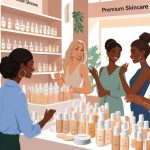Anti-Aging Moisturizers Now Outsmarting Pricey Prescription Creams
Top-Rated Anti-Aging Moisturizers on the Market

Every time I pick up an “anti-aging” moisturizer, I remember the time my dermatologist handed me a tiny sample and acted like it was contraband. Meanwhile, I’ve got three half-used jars from the drugstore and no clue which one actually does anything. Peptides, retinoids, whatever—brands just throw them in, price be damned. I keep telling myself it’s about what works, not the price tag, but then I’m staring at $200 creams and feeling like a sucker.
Drugstore Favorites
What stops me from dropping $200 on a face cream? Regret. So I just buy Cerave’s Skin Renewing Night Cream or Neutrogena Rapid Wrinkle Repair because, I mean, every “best of” list says they’re solid (the Good Housekeeping testers were brutal, by the way). Cosmopolitan’s anti-aging moisturizer reviews basically confirm I’m not alone.
Olay Regenerist Micro-Sculpting Cream gets mentioned at every pharmacy. I tried it—six weeks, nothing dramatic, but the niacinamide did something, probably more than the fancy packaging. Some nights I’d use RoC Retinol Correxion and wake up without peeling, which honestly felt like a win. Dermatologists always hype the retinol and emollient combo, but they never say if it’s worth the money. My cousin thinks if it doesn’t sting, it’s not working (he’s wrong, but I can’t forget it). None of these made my skin oilier, so that’s something.
Luxury Meets Science: Premium Picks
Who hasn’t bought SkinCeuticals A.G.E. Interrupter after doomscrolling about glycation? I caved, my bank account still hurts. It’s a thick cream, no scent, and some dermatologist in Vogue swore it “maintains collagen”—whatever that means. My lines looked a little better, maybe.
Augustinus Bader The Rich Cream is everywhere—Vogue loves it, everyone’s obsessed with TFC8® (don’t ask me to explain it). Charlotte Tilbury Magic Cream is always backstage at fashion shows, and yeah, it does make skin look plumper in photos, even if the smell is weirdly grandma-ish.
Sometimes even these “miracle” creams break me out. It happened. Most of them are just shea butter or silicones plus some peptide with a fancy name. My results? Softer skin for a week, then I start worrying it’s just hiding the real aging. That’s probably not science, but it’s how I feel.
Spotlight on Influential Formulas
If you scroll Instagram past midnight, you can’t avoid The Ordinary. Granactive Retinoid 2% is everywhere. Influencers swear their “derm friend” recommends it, but honestly, I just like that it’s simple and doesn’t freak out my skin (sometimes boring is good).
Olay Regenerist pops up again (can’t get rid of it), but I’ve also seen RoC’s Retinol Correxion Night Cream get love from older reviewers who don’t care about hype. That’s the kind of endorsement I trust. Cerave’s Skin Renewing Night Cream even beats pricier stuff in some clinical trials for hydration and texture, so maybe ceramides actually matter more than a gold lid.
These “influential” picks aren’t just hype—brands like SkinCeuticals or The Ordinary put out real ingredient lists and trials. But if you ask a random person, they’ll just mention whatever their mom used, or whatever Sephora gave them for free. Is anti-aging just tradition? Are we all lost? I don’t know.
Choosing the Best Moisturizer for Your Skin Concerns
Nothing lines up. Every cream promises miracles, and half the time I just get breakouts or my face feels tight. Targeted formulas only work if you know what to avoid and what to pile on (Omegas? Barrier peptides? Grape seed oil—how is it both too oily and not hydrating enough?).
Caring for Mature Skin and Sensitive Types
What drives me nuts? My skin turns on me the second I try a “gentle” cream. Aging skin isn’t just wrinkles and spots. My dermatologist yelled at me last week: Ditch fragrance—if you flush before meetings, it’s not worth it. Ceramides and peptides keep showing up for a reason—if they’re not up top on the label, skip it.
I had to switch after realizing heavy creams just smothered my face, especially around my jaw. Turns out, you want an emollient feel but not a bunch of filler—stuff like squalane, niacinamide, vitamin E. And get this: a derm in the Curology anti-aging breakdown swears by hyaluronic acid, but only if you slap an occlusive on after, or it all evaporates. Does that make sense? Not really.
Addressing Dryness, Redness, and Acne-Prone Skin
My dry patches are basically permanent. Retinoids without heavy moisture? Forget it. Some “rich” creams still make me peel. Layering is the only thing that works. If you’re always red, your barrier’s probably trashed; fatty acids and ceramides (like in SkinCeuticals Triple Lipid Restore—$97 for an ounce, which is wild, but Forbes says it works) beat any basic lotion.
Acne-prone skin? They scare you about “clogged pores,” but honestly, non-comedogenic matters more than the actives if you break out. I stick to products with zinc, niacinamide, and zero coconut oil—doesn’t matter if you’re oily or not, coconut oil is just chaos. Try telling that to someone who gets their advice from TikTok.
Non-Comedogenic and Oil-Free Options
Sometimes it feels like every moisturizer is plotting to ruin my skin. Once I thought “oil-free” was safe (it’s not). Gel-based or “mineral” drugstore picks usually work best for oily or combo skin. Vogue’s list of oil-free and non-comedogenic moisturizers is basically a playlist, but you still have to check for alcohols and silicones.
If my skin’s greasy by noon or dry by 3, I know the formula’s off. SPF always gets ignored, but even “non-comedogenic” sunscreens can clog more than shea butter. And “anti-pollution” on the label? Means nothing to my skin, just empties my wallet.
Integrating Anti-Aging Moisturizers Into Your Routine
Honestly, I can’t even keep track of which anti-aging moisturizer does what anymore. My counter’s a graveyard of half-used jars. But getting the order right—serum, moisturizer, whatever—matters way more than I want to admit. My derm friends laugh when I stress about mixing ingredients, but apparently technique is everything. Or maybe it’s all just luck.
Optimal Application and Layering
So, layering moisturizer? Still not sure I get it right. If I slap it on too fast, it pills like mad—honestly, I think I’ve wasted more moisturizer on my palms than my face some days. Someone said start with damp skin, dab it, don’t rub, and for the love of all things decent, don’t pile it on after your serums. I always forget and then regret it. Morning or night, sunscreen goes on top. Not mixed in. I tried that once and, yeah, it was a disaster. Patchy, weird, useless.
Layering steps? Total chaos if you try to wing it. The “official” order: cleanser, then hydrating stuff (hyaluronic acid or whatever), moisturizer, and SPF if it’s daylight. I basically mutter that to myself every morning, like some skincare mantra. If I mix a heavy moisturizer with an oily serum, my nose is shiny for hours. Gel moisturizers? Way less drama. My esthetician nags me to let each layer dry a couple minutes or the whole thing turns into a gummy mess. She’s right. Annoying, but right.
Pairing With Serums and Sunscreen
People forget sunscreen constantly. Like, I’m basically the SPF police in my group chat, always dropping broad-spectrum SPF reminders. Dermatologist says SPF 30 minimum, and I’m supposed to believe moisturizer with “anti-aging” on the label is enough? Nope. Peptides don’t stand a chance if you’re letting the sun roast your face.
Serums are a whole other headache. Vitamin C in the morning, or it gets nuked by sunlight. Retinol at night, and never with acids unless you want to look like you lost a fight with a loofah. I swear, mixing serums feels like AP Chem all over again. And, yeah, sunscreen always last—otherwise, what’s the point? Moisturizer with SPF is not a substitute, no matter how many times the bottle yells about “all-in-one.”
Establishing a Consistent Skincare Routine
Consistency is boring, apparently that’s the secret. I can’t even stick with one toothpaste, but sure, I’ll use the same anti-aging cream every single night? That’s what every skin expert tells me: habits, not magical products, actually make a difference. Dragging myself to slap on night cream when I’m exhausted is the real “hack.” Not fun, just… necessary.
People say you should switch routines monthly. Completely false. Skin needs weeks—sometimes months—to show any progress. Every time I get impatient and change things up, I break out. If I skip hydrating moisturizer for a few days, it’s like my face revolts. And SPF? If you only use it on sunny days, what’s the point of the rest of your “anti-aging” routine?
Some days, I just forget the whole routine. Whatever. Just pick it up again the next day. Eventually, the process gets automatic, and that’s when—supposedly—the science kicks in. Slow, annoying, but apparently it works.



